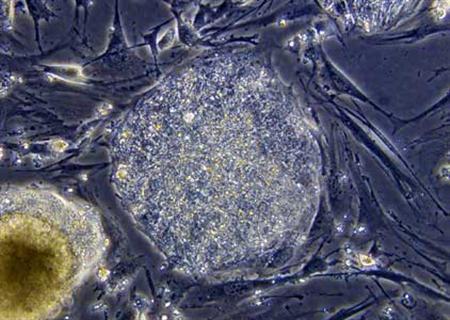Stem cell research means two-father babies could be just two years away
An international team of scientists have proved that it is possible to create human sperm and eggs from stem cells derived from adult skin, irrespective of the donor's gender. Their findings are expected to help people facing infertility problems due to some disease and also created great interest among the gay population. But researchers affirmed that the procedure involved serious ethical issues that would first have to be resolved.
Scientists had earlier created the primordial germ cells of mice, or stem cells that go on to create either sperm or eggs inside their laboratories, though the feat had never been replicated in humans. The lead researcher of the latest study, Dr. Azim Surani and his team had recently published findings from their other study, highlighting their success in manipulating human skin cells to create germ cells.
In the latest project study funded by the Wellcome Trust, scientists from Cambridge University in England and Israel's Weizmann Institute of Science, scientists created new human primordial germ cells using the skin collected from 10 different donor sources.
A comparison of the engineered germ cells with natural human stem cells taken from aborted human fetuses confirmed the presence of identical characteristics in the artificially created cells. The scientists also discovered that some genetic problems present in the other cells were absent in the engineered stem cells.
According to the researchers, the procedure could make IVF treatment now available for same-sex couples. Jacob Hanna, who led the project's Israeli arm, felt that the same technique could be perfected for creating a baby within two years, but expressed his reservations about the procedure. "The social and ethical implications . . . need to be thought through," he admitted, "but I am very confident it will work and will be very relevant to anyone who has lost their fertility through disease."
